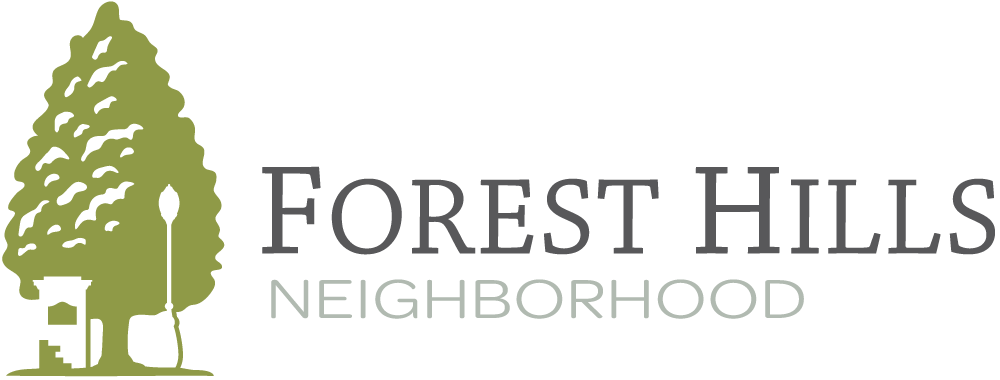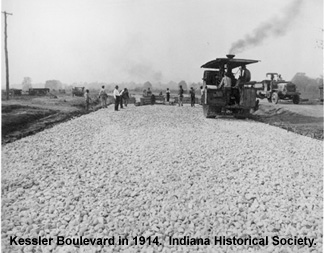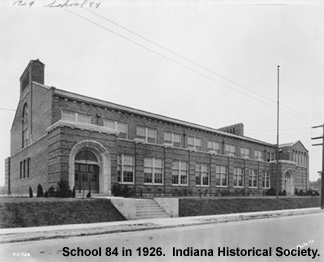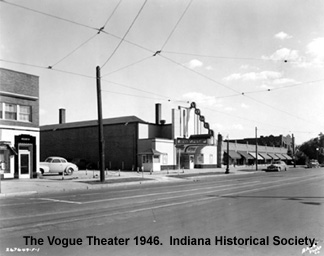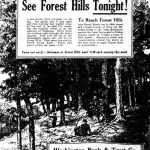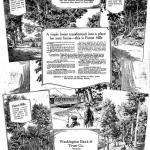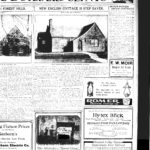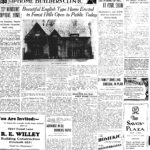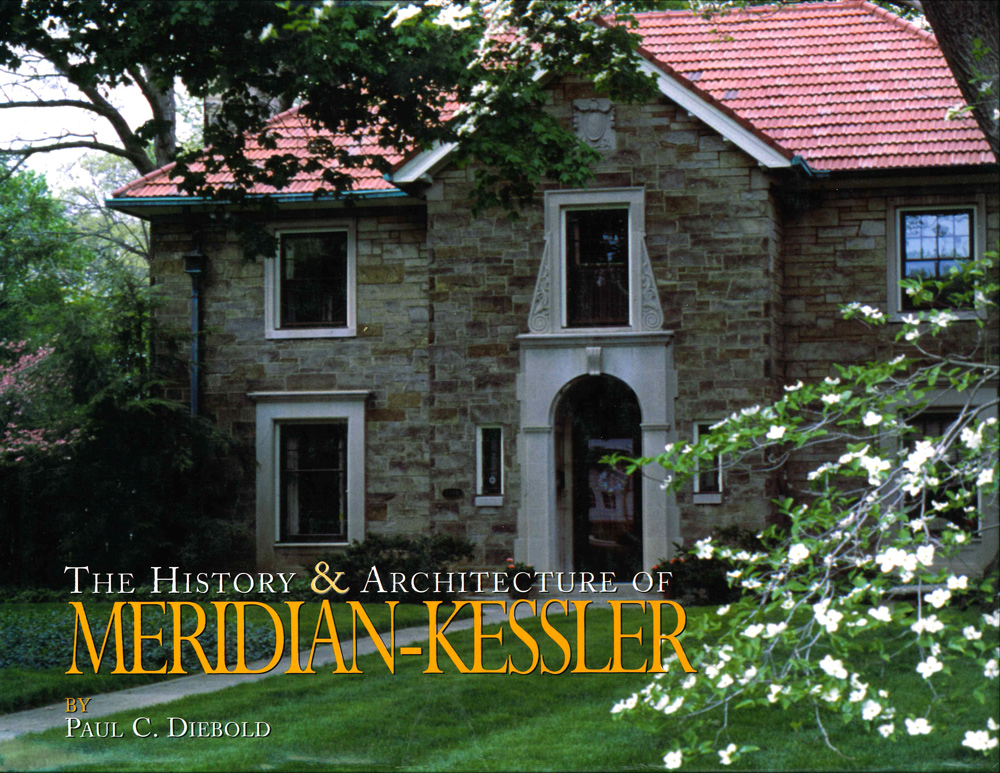Long ago what we call Forest Hills was undulating woodland where squirrels, chipmunks, raccoons and possums spent their lives; it still is. Indians came and went (abstracts of title, once part of every home purchase, actually noted when the Indians lost title to the land), and in the 1800’s what we know as Forest Hills was part of Stevenson’s Woods, which a century ago was given to Benjamin Stevenson and two of his sisters. In 1911 Benjamin Stevenson built an imposing house for his bride, Earla Bowers Stevenson. An excellent example of Prairie-style architecture, the Stevenson house features woodwork made of black walnut cut from trees felled at the the building site. Earla Stevenson was an avid gardener, whose spectacular flowers attracted many visitors, and she also earned great acclaim as a golfer, winning the first Indiana Women’s Golf Association Championship in 1922, the same year her husband subdivided his part of Stevenson’s Woods and named it Forest Hills. With construction of the new Forest Hills roads, the Stevenson house acquired a new address, 718 East 57th Street, in the Town of Broad Ripple (soon, alas, to be annexed to the City of Indianapolis), where this fine house is still admired today.
Since its founding more than 80 years ago, Forest Hills has remained a distinctive neighborhood. Almost all of its more than 200 residences exhibit the ornamental architecture and craftsmanship that blossomed in America between the Two World Wars, charming visual echoes of English Cottages, Tudor Manors, French, Mediterranean, Colonial and other styles, with roads planned by one of America’s premier landscape architects and graced with ornamental lampposts… an abundance of trees, many towering (the great Oak on East 58th Street is over 200 years old), many blooming in the spring, most ablaze with autumn colors… beautiful gardens continuing Mrs. Stevenson’s example… and borders marked by our brick and Indiana limestone columns. All this ambience has been long accompanied by an equally impressive neighborhood spirit, which goes back to the 1920’s with the first Annual Halloween Party, and has expressed itself over the years through the Forest Hills Neighborhood Association. All of this – the well defined architectural composition and character of the homes, the beauty of our landscape, the length and scope of our neighborhood association, the fact that these qualities have always been maintained since our founding long ago – all this was recognized when Forest Hills became the first neighborhood in Washington Township to be placed on the National Register of Historic Places.
Generations after its creation early in this century, Forest Hills remains virtually unchanged from its founder’s conception, even as it moves forward into the next century. The electronic inter-urban train is gone, but College Avenue still provides the best available public transportation downtown. The Monon Track is gone, but continues as a rail-trail. The Town of Broad Ripple is gone, but the Village of Broad Ripple is alive and well. Although much the same at first glance, many of our homes have been tastefully updated and expanded. Although some of the old trees are gone, new ones are growing and many yards are landscaped more beautifully than ever before. It was written many years ago, and is still true, that “Forest Hills is a neighborhood in which we can all share a deep sense of pride.”
– Keith Lerch, FHNA Treasurer, Resident of Forest Hills Neighborhood 30+ Years.
